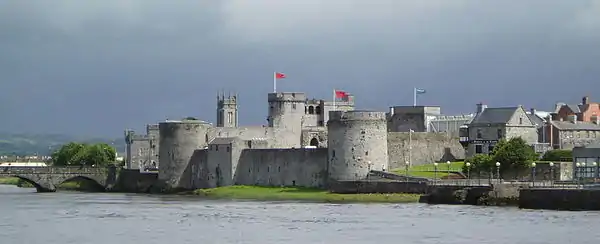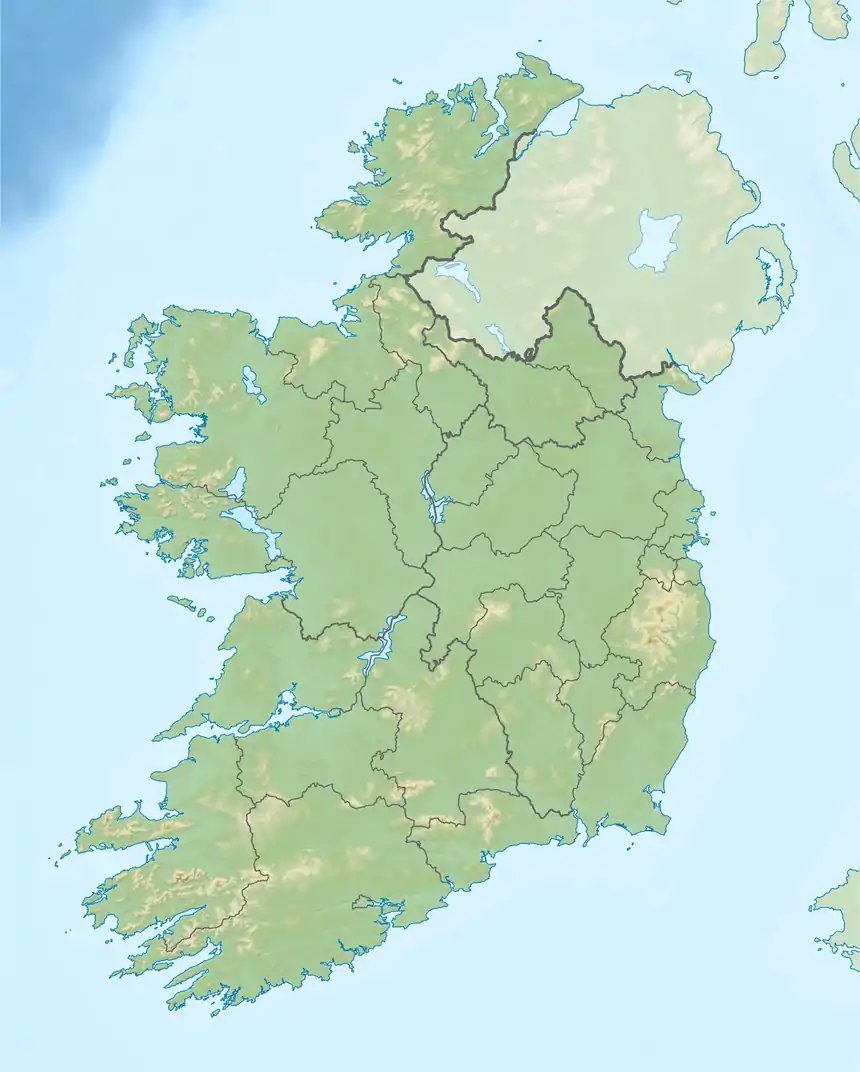Siege of Limerick (1642)
The city of Limerick has been besieged five times during the 17th century. Two of these sieges took place during the Eleven Years' War The first of the sieges occurred during the spring of 1642 when Irish Confederate troops besieged and took the citadel of King John's Castle from an English Protestant garrison.
| Siege of Limerick (1642) | |||||||
|---|---|---|---|---|---|---|---|
| Part of the Irish Confederate Wars | |||||||
 King John's Castle on the River Shannon | |||||||
| |||||||
| Belligerents | |||||||
|
|
| ||||||
| Commanders and leaders | |||||||
| George Courtenay | Garret Barry | ||||||
| Strength | |||||||
| 200[1] | |||||||

1641 rebellion
The Irish Confederacy’s taking of Limerick was made far easier than subsequent attempts by the fact that they had the support of most of the city’s population. About 600 English Protestant settlers had fled to the city to escape the Irish Rebellion of 1641 and had fortified themselves in King John's Castle in the centre of Limerick. The city was predominantly Catholic and appealed to the new Confederate Catholic government at Kilkenny to capture this Protestant citadel.
Confederate troops arrive
As a result, Garret Barry, a Confederate general marched to Limerick with 1,500 men to secure it. Since he had no siege artillery, Barry put his men to work digging mines under the walls of the castle, which he intended to collapse by burning their supports. He also positioned snipers in the houses surrounding the castle to harass the defenders, particularly in St. Mary's Cathedral, which overlooked King John’s Castle. Finally, he cut off the defenders' food and water supply.
Surrender
After five weeks, when the English Protestants were ravaged by disease, they surrendered on terms, before Barry had to collapse his mines and assault the castle. The 400 surviving Protestants were evacuated to Dublin.
Citations
- M'Enery 1904, p. 163.
References
Further reading
- "Ireland's Wars: The 1642 Siege of Limerick". Never Felt Better. Never Felt Better. 1 May 2013. Retrieved 23 May 2020.